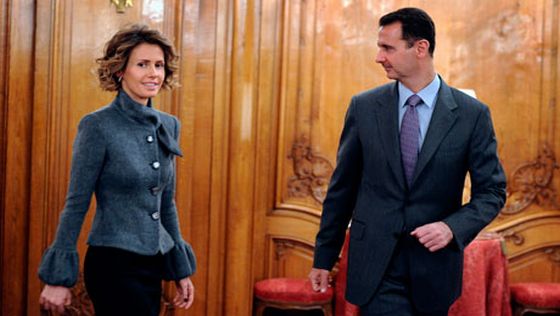
Syrian First Lady Asma al-Assad has been diagnosed with breast cancer, officials confirmed on August 8.
President Bashar al-Assad’s wife was receiving treatment for an early-stage malignant tumor.
Born and raised in London, Asma al-Assad has been a highly controversial figure.
The Syrian first lady was one of twelve people placed under EU sanctions in 2012 over the government’s violent response to the Syrian uprising.
A photograph of Asma al-Assad and her husband was posted on Twitter together with the words: “Mrs. Asma al-Assad begins the first stage of treatment for a malignant breast tumor that was discovered early…. the Presidency and its team wish Mrs. Asma a speedy recovery.”
A dual British-Syrian national, Asma al-Assad attended school and university in London before becoming an investment banker.
She moved to Syria in 2000 and married former ophthalmologist Bashar al-Assad, just months after he succeeded his father Hafez al-Assad as president.
Bashar and Asma al-Assad were initially presented as reformers and as a change from the repressive rule of the late president, with a glowing portrait of the first lady published by Vogue in February 2011 – and since deleted – describing her as “the freshest and most magnetic of first ladies”.
Syrian War: Asma al-Assad Rejected Asylum Offer
EU set to impose travel ban and asset freeze on Syria First Lady Asma al-Assad
However, just a month later, police reacted brutally to protests in the southern city of Deraa, sparking a conflict which has claimed the lives of around half a million people and displaced millions more.
In her first public comments on the violence in February 2012, Asma al-Assad firmly stood beside her husband.
The same year, activists released thousands of private emails purportedly from the president and his wife apparently showing that Asma al-Assad continued to buy luxury goods even after the uprising had begun. She was also personally sanctioned by the EU.
Asma al-Assad did not speak to foreign media again until 2016, when she told Russian state-backed television that she had previously rejected offers of asylum abroad.